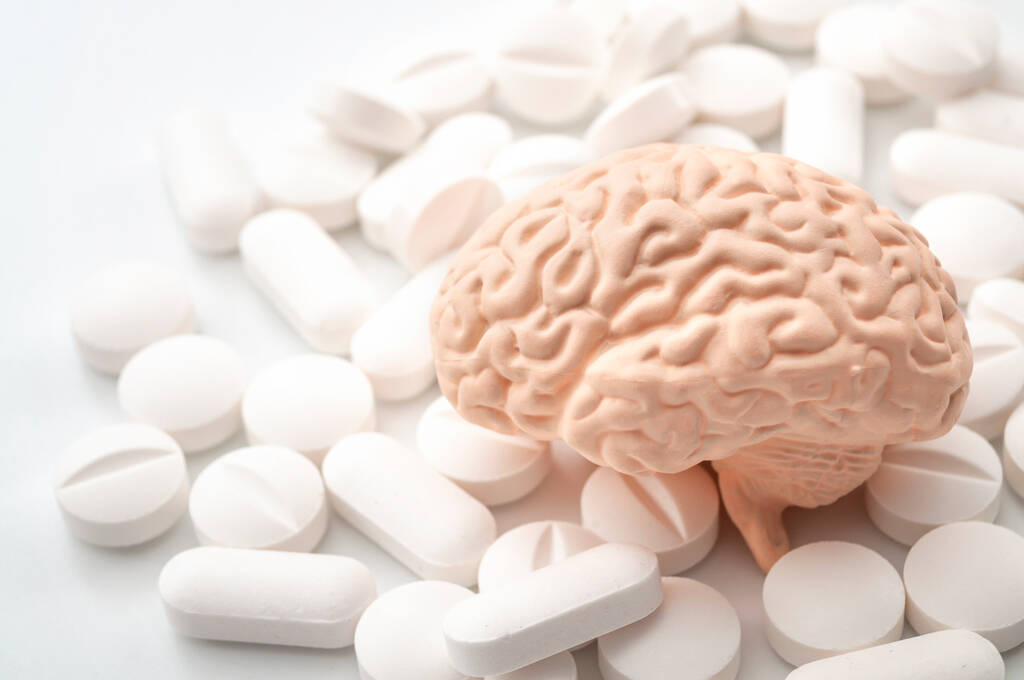Biohacking: Nootropic Explained
September 13, 2023

Welcome, fellow biohackers, to the fascinating world of nootropics! This is your ultimate guide, your map to the treasure trove of cognitive enhancement. So, buckle up, because we're about to embark on a thrilling journey through the realm of brain-boosting substances.
Before we dive in, let's get one thing straight: nootropics aren't some magical potion that will turn you into a genius overnight. They're substances—both natural and synthetic—that can enhance your cognitive abilities, improve your memory, creativity, and motivation. Now, let's get the ball rolling, shall we?

What are Nootropics?
Let's start with the basics. The term "nootropic" comes from the Greek words "nous", meaning "mind", and "trepein", meaning "to bend". So, in essence, nootropics are mind-benders—not in a psychedelic way, but in a way that can enhance your cognitive function.
Nootropics can be as simple as caffeine, found in your morning cup of joe, or as complex as modafinil, a prescription drug used to treat sleep disorders. But no matter their complexity, all nootropics share one common goal: to help you become the best version of yourself.
Types of Nootropics
There are two main types of nootropics: natural and synthetic. Natural nootropics are substances found in nature, like caffeine, ginseng, and ginkgo biloba. These substances have been used for centuries in traditional medicine to boost brain function and overall health.
Synthetic nootropics, on the other hand, are man-made substances designed to enhance cognitive function. These include drugs like modafinil, Adderall, and piracetam. While these substances can be highly effective, they should be used with caution, as they can have side effects and potential for abuse.
How Do Nootropics Work?
Now that we know what nootropics are, let's delve into the nitty-gritty of how they work. Nootropics work by interacting with the brain's neurotransmitters, the chemical messengers that transmit signals between nerve cells.
By influencing these neurotransmitters, nootropics can enhance cognitive function in a variety of ways. For example, they can increase the production of neurotransmitters associated with memory and learning, like acetylcholine and dopamine. They can also improve blood flow to the brain, providing it with more oxygen and nutrients.
Neurotransmitter Interaction
One of the main ways nootropics work is by interacting with neurotransmitters. For example, some nootropics increase the production of acetylcholine, a neurotransmitter associated with memory and learning. This can result in improved memory recall and increased ability to learn new information.
Other nootropics work by increasing dopamine levels, a neurotransmitter associated with motivation and reward. This can result in increased motivation, improved mood, and enhanced productivity.
Increased Blood Flow
Another way nootropics work is by improving blood flow to the brain. The brain is a highly active organ that requires a constant supply of oxygen and nutrients to function properly. By improving blood flow, nootropics can ensure that the brain gets the nutrients it needs to perform at its best.
This can result in improved cognitive function, increased energy levels, and enhanced mental clarity. So, if you're looking for a way to boost your brain power, improving blood flow could be the way to go!
Benefits of Nootropics
Now that we've covered the basics of what nootropics are and how they work, let's talk about the benefits. Nootropics can have a wide range of benefits, from improved memory and focus to increased creativity and motivation.
But remember, nootropics aren't a magic bullet. They're a tool that can help you enhance your cognitive abilities, but they're not a substitute for a healthy lifestyle. So, without further ado, let's dive into the benefits of nootropics!
Improved Memory
One of the main benefits of nootropics is improved memory. By increasing the production of neurotransmitters associated with memory and learning, nootropics can enhance your ability to recall information and learn new things.
This can be particularly beneficial for students, professionals, and anyone else who needs to keep their memory sharp. So, if you're looking for a way to boost your memory, nootropics could be just what you need!
Increased Focus
Another benefit of nootropics is increased focus. By improving blood flow to the brain and influencing neurotransmitters, nootropics can help you stay focused and attentive, even during long and demanding tasks.
This can be particularly beneficial for people with attention deficit disorders, but it can also be helpful for anyone who needs to stay focused on their work or studies. So, if you're struggling with focus, nootropics could be the solution you're looking for!
Side Effects and Risks of Nootropics
While nootropics can have a wide range of benefits, they're not without their risks. Like any substance, nootropics can have side effects, and they can also have potential for abuse. So, before you start experimenting with nootropics, it's important to be aware of the risks.
Some common side effects of nootropics include insomnia, anxiety, and gastrointestinal problems. In addition, some nootropics can have more serious side effects, like high blood pressure and heart problems. So, it's important to use nootropics responsibly and under the guidance of a healthcare professional.
Insomnia
One common side effect of nootropics is insomnia. This is particularly common with nootropics that stimulate the central nervous system, like caffeine and modafinil. If you're experiencing insomnia, it may be a sign that you're taking too much of a nootropic, or that you're taking it too late in the day.
To avoid this side effect, it's best to start with a low dose of a nootropic and gradually increase it as needed. It's also a good idea to avoid taking nootropics late in the day, as they can interfere with your sleep.
Anxiety
Another common side effect of nootropics is anxiety. This is particularly common with nootropics that increase dopamine levels, like Adderall and piracetam. If you're experiencing anxiety, it may be a sign that you're taking too much of a nootropic, or that it's interacting with other substances or medications you're taking.
To avoid this side effect, it's best to start with a low dose of a nootropic and gradually increase it as needed. It's also a good idea to talk to your doctor before starting a new nootropic, especially if you're taking other medications or have a history of anxiety or other mental health conditions.

Conclusion
Well, biohackers, we've come to the end of our journey through the world of nootropics. We've covered a lot of ground, from the basics of what nootropics are and how they work, to the benefits and risks of these substances.
Remember, nootropics are a tool, not a magic bullet. They can help you enhance your cognitive abilities, but they're not a substitute for a healthy lifestyle. So, use them wisely, and always under the guidance of a healthcare professional. Happy biohacking!

 Back to Blog
Back to Blog